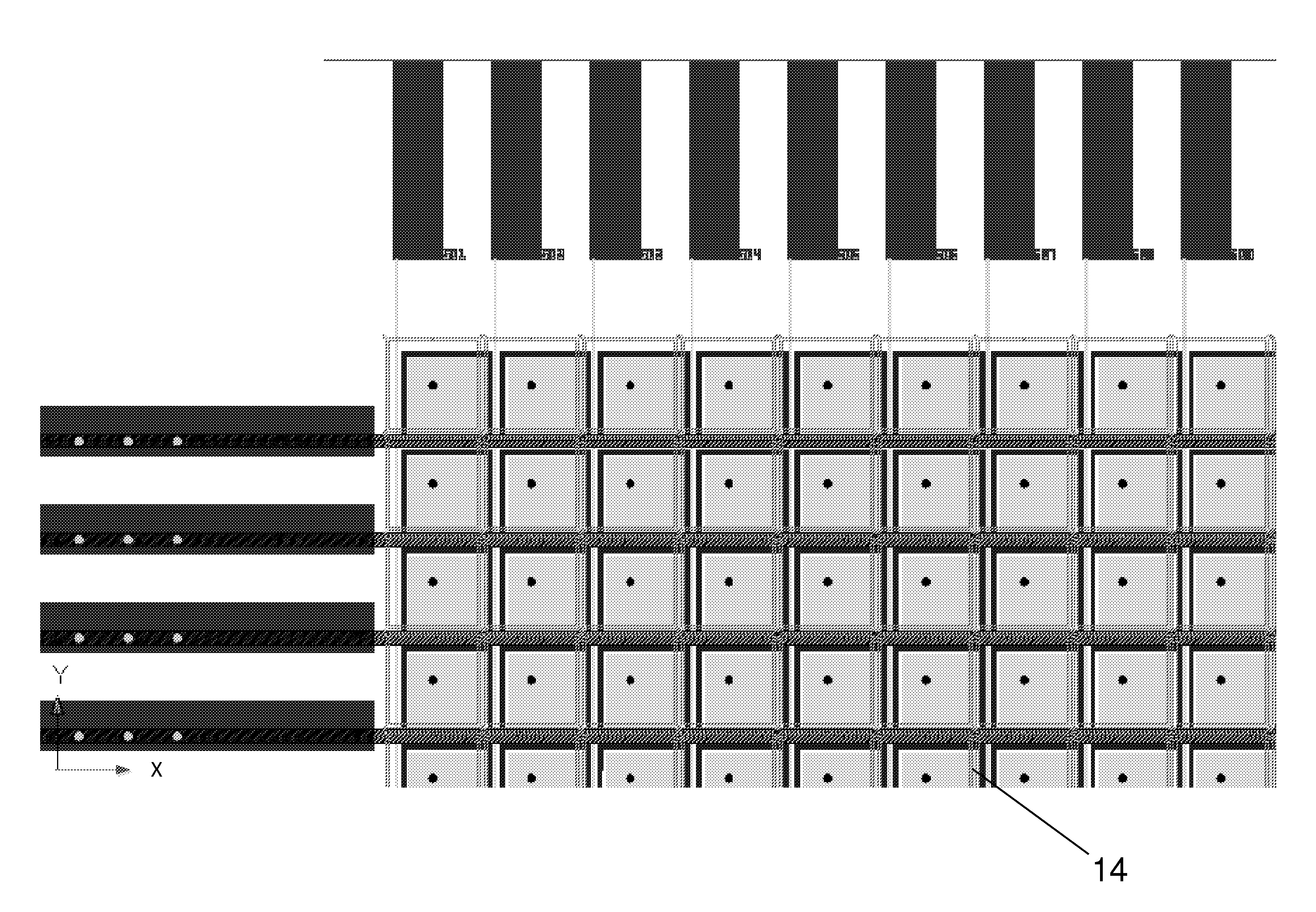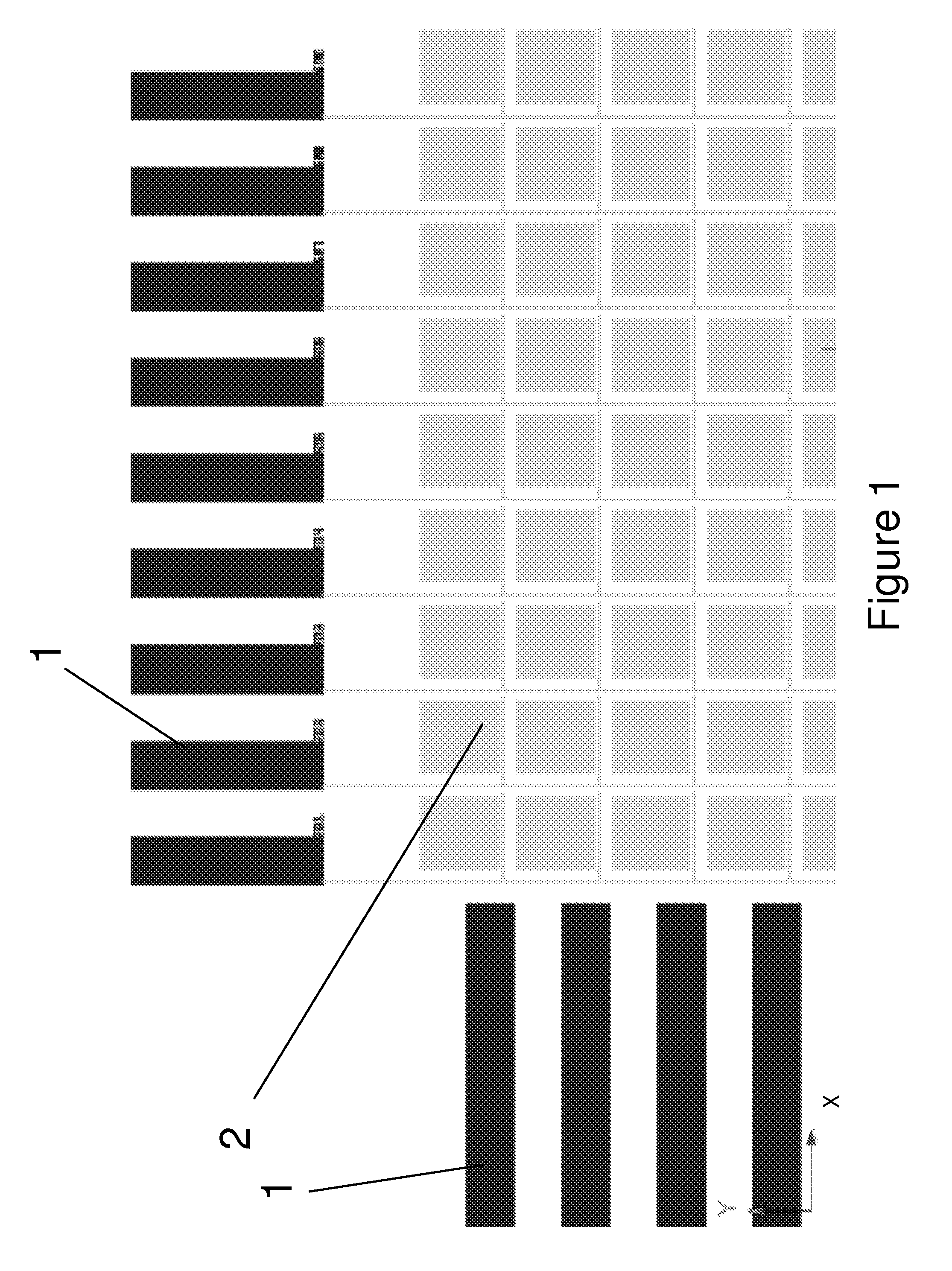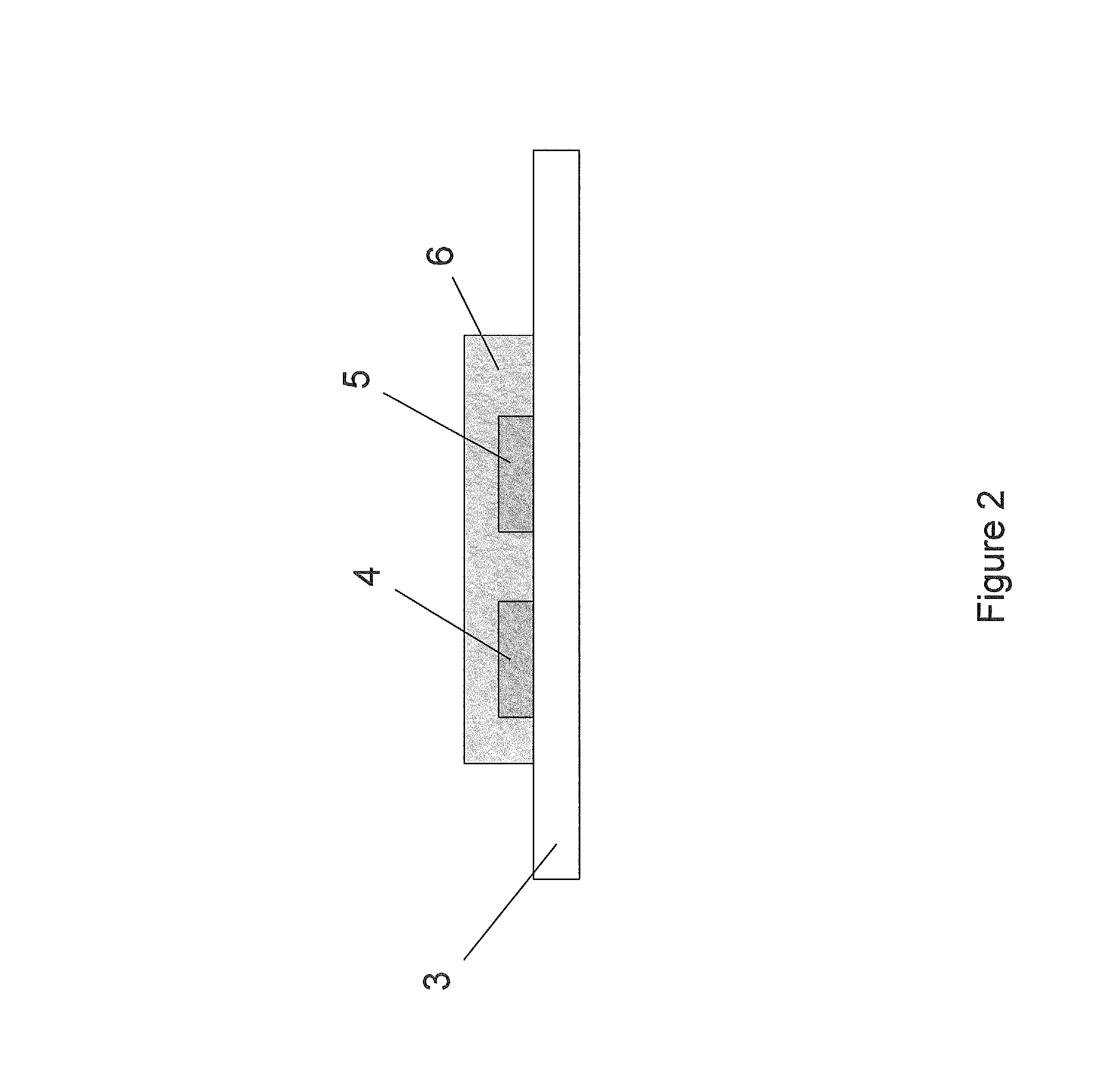Distortion tolerant processing
a technology of distortion tolerance and integrated circuit, which is applied in the direction of sustainable manufacturing/processing, semiconductor/solid-state device details, instruments, etc., can solve the problems of slow processing speed, inapplicability to features that are not applicable, and limited step-and-repeat methods, etc., to achieve good device operation, reduce the effect of mask size and low throughpu
- Summary
- Abstract
- Description
- Claims
- Application Information
AI Technical Summary
Benefits of technology
Problems solved by technology
Method used
Image
Examples
example
[0051]A low cost method of processing an active-matrix display with top-gate TFT architecture containing non-repetitive patterns on a distorted flexible substrate.
[0052]In the case of an active matrix display with top-gate TFT architecture the non-repetitive pattern to be placed on the lower layer contains interconnects that link the data lines on the source-drain level as well as gate interconnect lines to the row-and-column driver chips or the flexible connectors mounted on the edge of the display, as well as non-periodic alignment marks and test structures.
[0053]These non-repetitive patterns on the lower layer can be integrated together with periodic patterns such as the source-drain of the active matrix array while the gate electrodes and gate interconnects, semiconducting active layer island, common electrode structures, and any pixel electrode patterns need to be laid out as periodic patterns on an upper layer. Particularly accurate relative alignment is required between the l...
PUM
| Property | Measurement | Unit |
|---|---|---|
| temperature | aaaaa | aaaaa |
| thickness | aaaaa | aaaaa |
| thickness | aaaaa | aaaaa |
Abstract
Description
Claims
Application Information
 Login to View More
Login to View More - R&D
- Intellectual Property
- Life Sciences
- Materials
- Tech Scout
- Unparalleled Data Quality
- Higher Quality Content
- 60% Fewer Hallucinations
Browse by: Latest US Patents, China's latest patents, Technical Efficacy Thesaurus, Application Domain, Technology Topic, Popular Technical Reports.
© 2025 PatSnap. All rights reserved.Legal|Privacy policy|Modern Slavery Act Transparency Statement|Sitemap|About US| Contact US: help@patsnap.com



